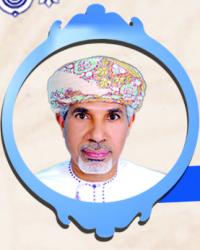Allah did confer a great favour on the Believers when He sent among them a Messenger from among themselves, rehearsing unto them the Signs of Allah, purifying them. And instructing them in Scripture and Wisdom, while before that, they had been in manifest error. (Quran 3:164)
It is the human nature to desire improvement, to make progress, to aim at achieving goals and succeeding in life. Even other people around us, family and friends, wish us to excel, to win, and to succeed in all our endeavours. Today, those who are involved in organisations and business management, understand very well the emphasis placed on self-development and self-improvement in order to increase the performance of individuals and teams that make up those organisations — organisations are only as good as their human capital.
In the same way, Islam aims to transform human society to the better, but it can only achieve its objectives with ardent contribution of the valuable and dependable members of the society. Human beings are much diversified; people are unique not only in terms of their physical details, but also in terms of their psychology, behaviour patterns, attitudes and worldview. It is not possible to shape all humans into a single identity.
In fact, there is no need to destroy the human richness and diversity that the Creator has intended to be preserved. What Islam requires is, that human beings are trained to grow such that they behave in a predictable way within certain limits. Thus, if they are asked to assemble for prayers at a certain time, the majority of them will turn up. If they are asked to give part of their wealth to the poor and the needy, the majority will respond generously. In Quranic terminology, the word used for this training is tazkiyah. In organisational and management language, it is “self-development” and “self-improvement”.
Tazkiyah encompasses two parts: to cleanse/purify and to develop/improve oneself.
In Tazkiyah our focus is spiritual self-development and self-improvement, but it could also be physical as well as human beings need development and improvement in both.
The aspects of cleanse/purify and develop/improve are complimentary to each other since whatever is clean and pure will certainly grow and prosper according to its potentialities.
The Quran tells us: Prosperous is he who has cleansed himself. (Quran 87:14) In another place, the Qur’an tells us: Truly he succeeds that purifies it; and he fails that corrupts it. (Quran 91:9-10) The process of tazkiyah or spiritual self-development and self-improvement cannot be imposed on us. It has to be the personal choice and responsibility.
Our teachers and institutions in society can facilitate our desire to grow, but the load is on the individual. This brings us to the first requirement for tazkiyah which is our commitment to cleanse and purify ourselves, and with determination to remain steadfast.
The second requirement for tazkiyah is sincerity in our efforts. Like any deed in Islam, purification of intention is important and necessary in the process of tazkiyah, because it is through God’s grace and God’s aid that we can achieve our goals. Allah says in the Quran, And whosoever desires the Hereafter and strives after it with the effort necessary, being a believer, they are the ones whose striving is acceptable to Allah. (Quran 17:19)
With any programme of action there needs to be a model to facilitate its implementation. Allah has provided us with a perfect model in the Quran, You have indeed in the Messenger of Allah a beautiful pattern (of conduct) for any one whose hope is in Allah and the Final Day, and who engages much in the praise of Allah. (Quran 33:21) Prophet Muhammad (pbuh) is the perfect example for us to follow. He left behind a rich human legacy and to follow him is to set upon oneself a life-long journey of tazkiyah. He was an orphan and a father; a husband and a widower; a shepherd and a trader; a commander and spiritualist; a ruler of his people and among the poorest of them; a father who suffered the heartbreak of burying his children and a grandfather who relished the delightful time with his grandchildren. He exemplified truthfulness, justice, forgiveness, compassion, tolerance, restraint, perseverance, thankfulness, gratitude, cleanliness, moderation, modesty and the many etiquettes of goodness. Thus, the comprehensive study of the life of Prophet Muhammad (pbuh) and his Sunnah teach us tazkiyah. For example, one of the most important aspect of the Prophet’s life was his moderation and well-balanced conduct. He stopped his companions from praying all night or fasting continuously or living the life of celibacy.
Brotherhood and community life are essential for achieving self-purification. The evidence we can present to you is, all acts of compulsory worship in Islam are communal whether it is prayers or fasting or pilgrimage. It is the strong bond of brotherhood and sisterhood that sustains the seed of faith and it also this strong bond that reinforces human potentiality — tazkiyah. The Quran has put it beautifully, You bind yourself with those who call upon Allah morning and evening. (Quran 18:28) Modern psychology confirms the peer influence as a powerful agent in human behaviour, and group life is the most powerful force to stimulate and inspire people.
Finally, it is natural that the way we find beneficial for our own self-development and self-improvement should lead us to invite others to the same path. This will increase our own commitment, stimulates our faith, and enhance our steadfastness. With the support of a community of brothers and sisters, each person reinforces the other, the whole of life becomes integrated and this makes it easy for us to traverse the path of truth and righteousness. The Qur’an tells us: Who is better in speech than the one who invites (people) to Allah, works righteousness and say, ‘I am among those who surrender to Allah. (Quran 41:33)
By: Hafidh bin Saif Al-Rawahy
hafidh.alrawahy@gmail.com




